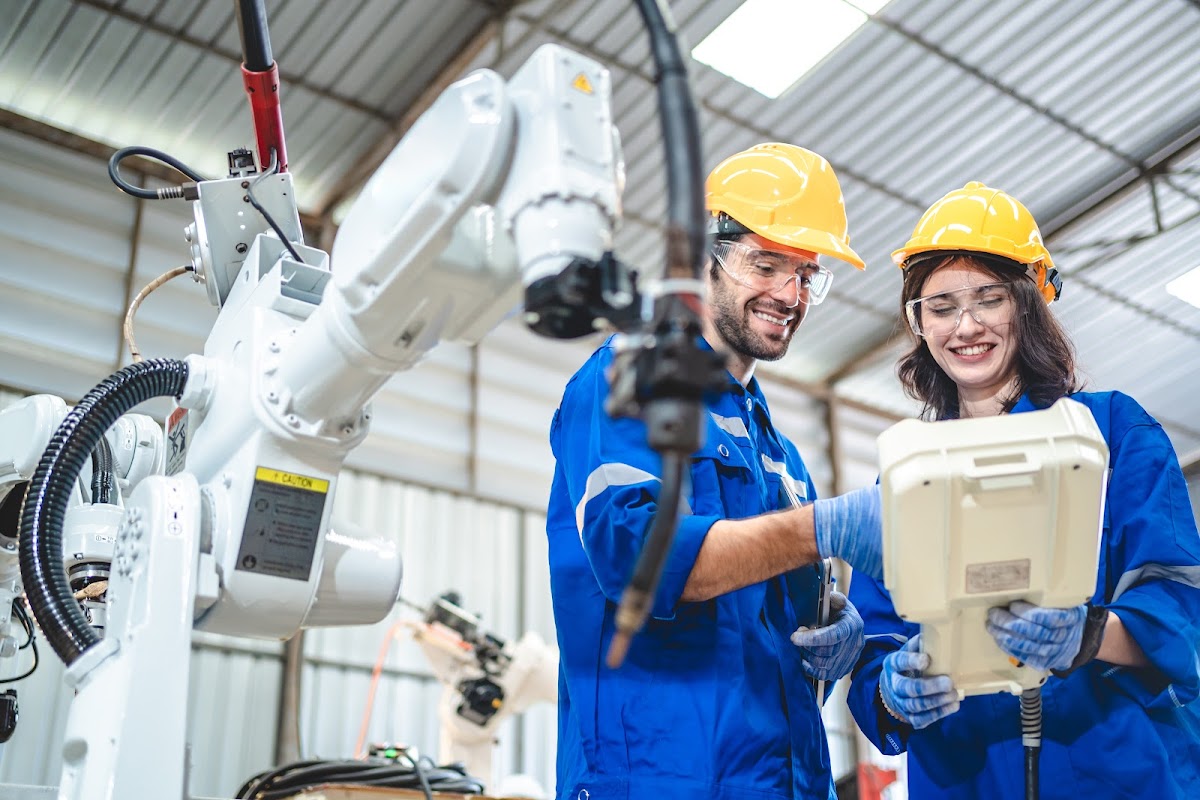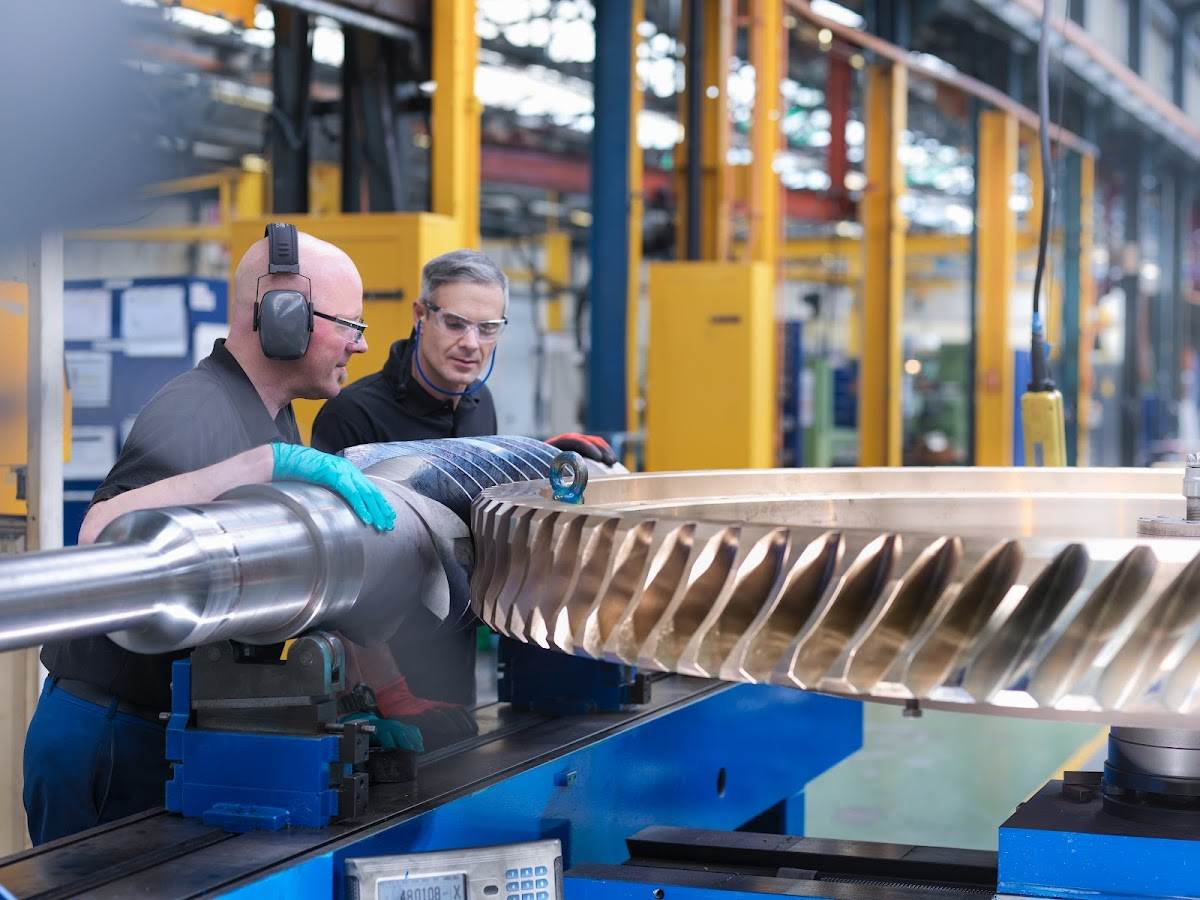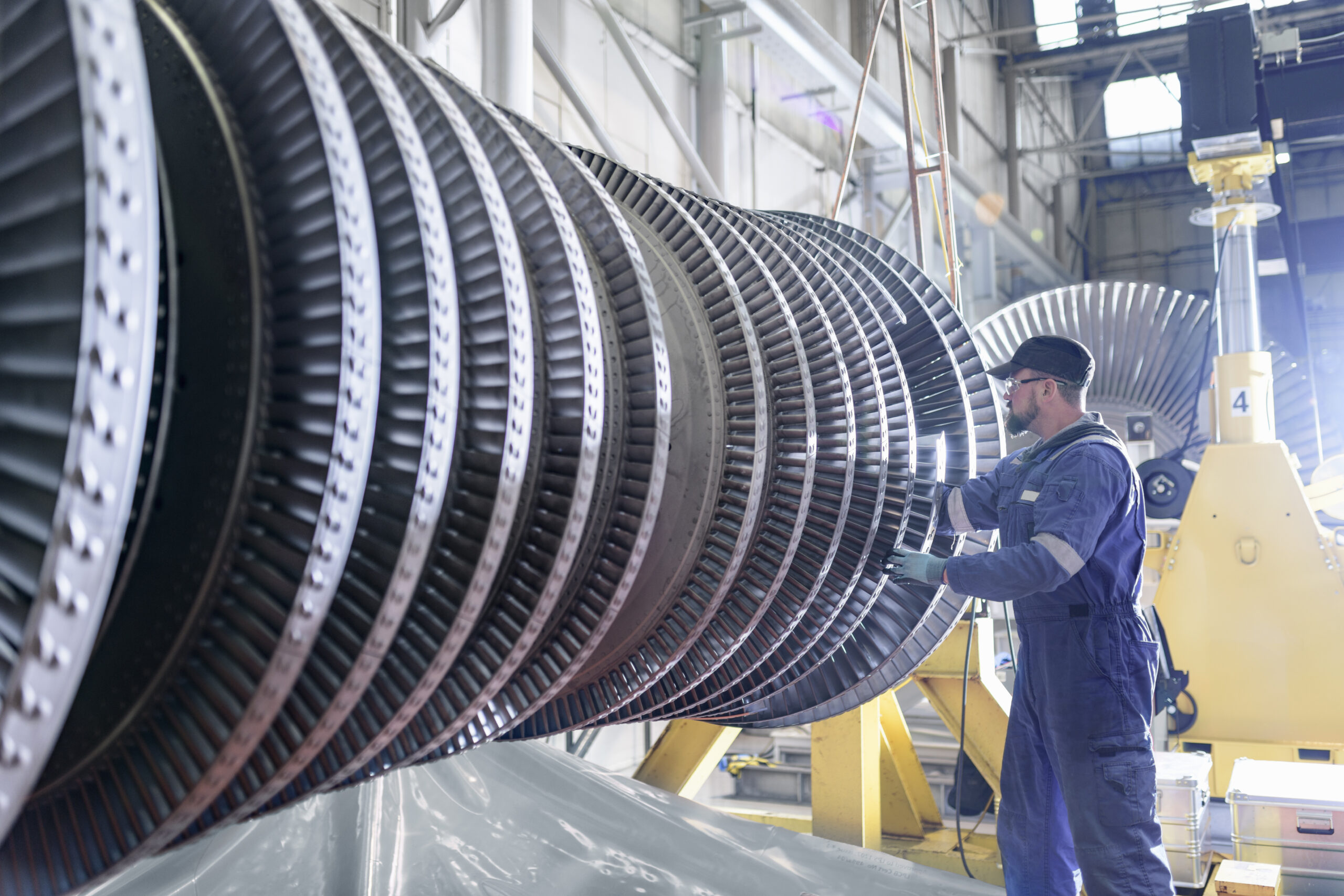In today’s rapidly moving industry, industrial automation equipment has become very instrumental in increasing productivity and efficiency. With the latest automation systems, businesses can successfully simplify these complex process systems, thus minimizing the need for human intervention and maximizing throughput. The wide range of industrial automation and control products from motor control to robotics can greatly enhance production processes. Staying updated with the latest automation technologies is necessary to keep the manufacturing sector in the fight.
AP4 offers high-performance automation solutions, suitable for serving diversified industry requirements for optimum integration and real-time machinery monitoring. Are you ready to transform your business with the latest automation products? Learn how the latest industrial automation can help you transform your business and be on the pathway to sustainable growth.
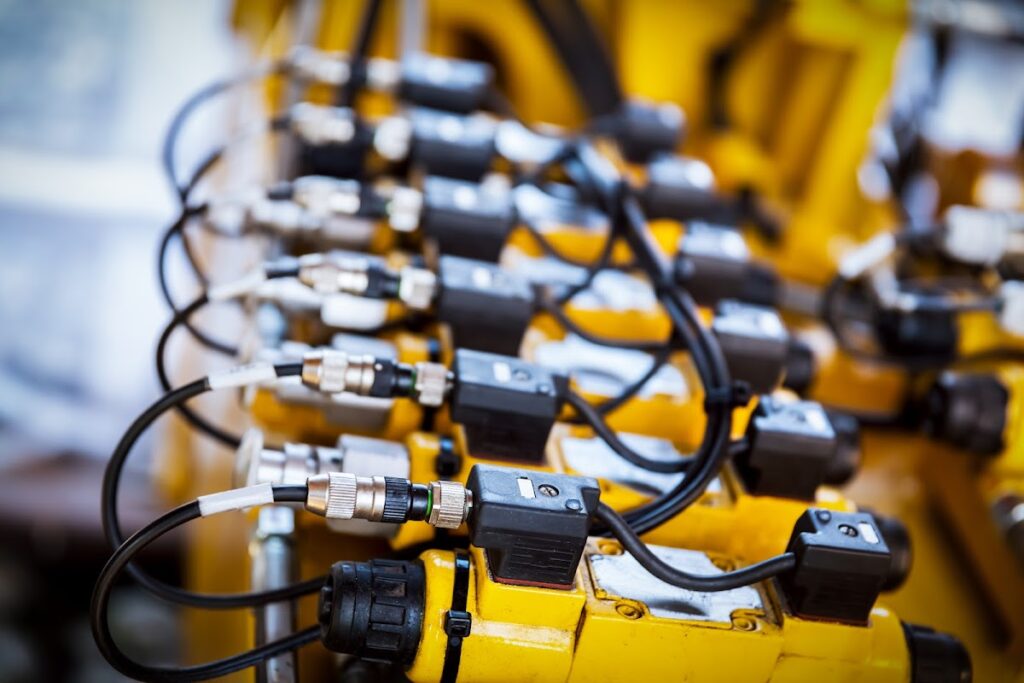
Understanding Industrial Automation
Industrial automation uses control systems to operate specific machinery and processes with minimal human involvement by using computers, robots, and programmable logic controllers (PLCs). This technology offers increased productivity, efficiency, and high-quality products for manufacturing and the automotive industry.
Key Components of Industrial Automation Systems
- Control Systems: These include PLCs, motion control systems, and robotics that manage the automation process.
- Sensors and Actuators: Sensors gather data, while actuators perform physical actions, ensuring real-time monitoring and process control.
- Interface Devices: These include human-machine interfaces (HMIs) that allow operators to interact with the automation system.
- Software and Hardware: Essential for integration and control, they facilitate the smooth operation of automation equipment.
Historical Context and Evolution
Industrial automation began evolving in the late 18th century with the advent of the Industrial Revolution. In the early days, mechanical systems powered by steam engines provided mechanical motions to automate simple tasks. Later, with the introduction of electrical relays and voltage control in the early 20th century, more complex processes started getting automated. The significant breakthrough was in the 1970s when the development of PLC technology started enabling flexibility and scalability in automation solutions. The technological advancements, backed by digital solutions, network interfaces, and high-performance computing, have powered intelligent, efficient, and sustainable automation systems today.
AP4 is at the forefront of current industrial automation products and solutions to serve diversified modern industries. From high-speed robotics to compact sensors, our package will keep your business at the top in a competitive environment.
Benefits of Industrial Automation
Upgrading to the latest industrial automation equipment can bring many benefits that can revolutionize the way you do business.
1. Increased Productivity and Uptime
Industrial automation systems, such as programmable logic controllers and automation and control devices, ensure your machinery continues running. The high-performance systems will ensure constant production processes, thus minimizing breakdowns for repairs and remarkably improving output. Automation makes it possible to work uninterruptedly 24/7 without human involvement to achieve maximum production and efficiency.
2. Higher Quality and Precision
Automation ensures the performance of every job with great precision, eliminating the variable nature found in manual processes. Sensors, robots, and advanced motion control systems provide unrivaled accuracy, producing high-quality products. This level of precision is critical in industries such as manufacturing and automotive, where the output needs to be consistent.
3. Cost Efficiency and ROI
Industrial automation solutions can help save costs significantly. They reduce labor costs by avoiding wastage and using energy optimally, providing a better return on investment (ROI). Besides, operational expenses are reduced since automated systems seldom require frequent servicing or maintenance.
4. Improved Safety and Risk Management
Automation reduces the involvement of human workers in hazardous tasks, improving workplace safety. This can be made possible by using industrial control systems and monitoring technologies that detect and mitigate risks in real time to provide a safer working environment.
5. Data Collection and Analytics for Informed Decision-Making
Data generated via automated systems is huge, which could be very helpful in diagnostics and analysis. This data gives relevant insights into the production process, thus allowing companies to make smarter decisions based on data. Real-time monitoring and process control improve operations and enhance efficiency at large.
AP4 provides comprehensive industrial automation solutions, from proposal to delivery, according to your varied requirements. Our state-of-the-art automation products enable you to ensure efficiency, quality, and safety in your operations.
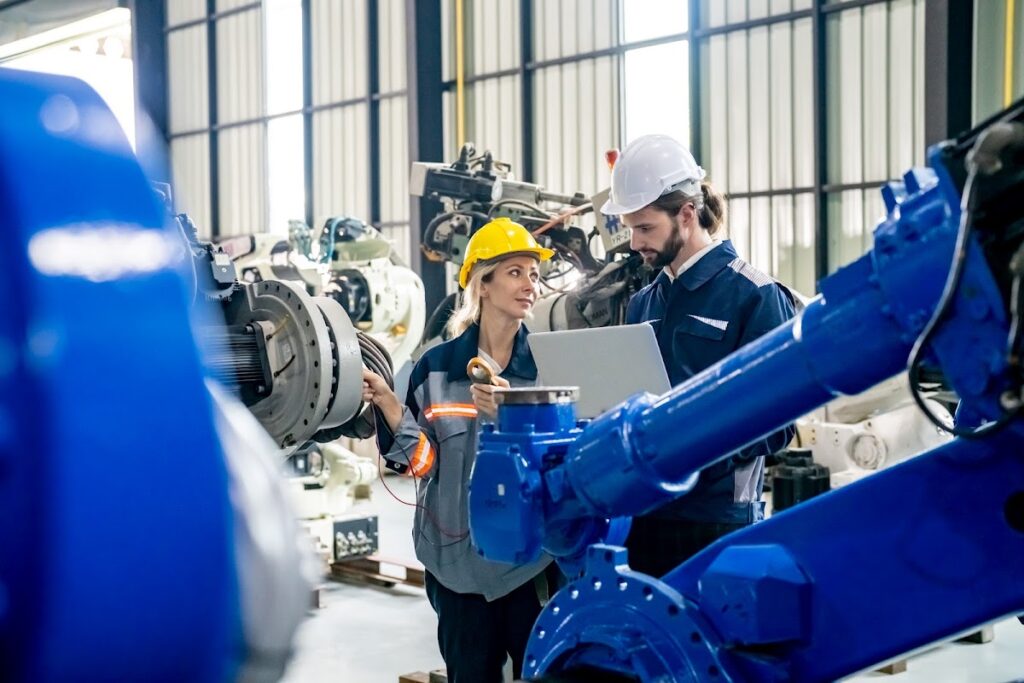
Latest Trends in Industrial Automation
1. Internet of Things (IoT) and IIoT
The so-called Internet of Things (IoT) and its industrial variant, the Industrial Internet of Things (IIoT), are revolutionizing industrial automation. IoT and IIoT allow device, machine, and sensor communication via a network, sharing and monitoring data in real-time. In industrial automation, such technologies realize high process control and predictive maintenance levels, thus increasing efficiency.
These applications include sensor networks for equipment health monitoring and intelligent factories where decision-making is data-driven. IoT and IIoT will help businesses leverage increased productivity, reduced downtime, and cost savings through operations optimization with no workflow interruption.
2. Artificial Intelligence (AI) and Machine Learning (ML)
Artificial Intelligence (AI) and Machine Learning (ML) are intrinsic to the development of industrial automation. Such technologies make machines learn from data, adapt to new conditions, and provide actions with a higher level of precision. Applications of AI and ML in automation include predictive maintenance, where algorithms forecast equipment failures and quality control systems that detect defects in real time.
AI and ML improve operational efficiency and productivity by enhancing decision-making processes through the analysis of huge amounts of data. For example, AI-driven production schedule optimization may result in increases in output of as much as 50 percent while reducing costs by an equivalent amount—genuinely indispensable technologies in modern industrial applications.
3. Collaborative Robots (Cobots)
Cobots are a variety of collaborative robots designed to work with people, offering much more flexibility and efficiency across industrial settings. Unlike traditional and often isolated operating robots, cobots have advanced sensors and safety features to provide a safe interaction mode between the Cobots and human operators.
They are programmable and can easily be installed into many different tasks, from assembly and packaging to quality control. They become especially useful in applications requiring precision and adaptability. By sharing the workload with a human worker, cobots improve productivity and reduce the potential risks of injuries; they are definitely considered useful in any manufacturing environment.
4. Advanced Robotics
Recent developments in robotics have extended its abilities and applications to industrial automation. The new development is that modern robots have become more agile, speedy, and autonomous. They are designed with hi-tech sensors that respond using artificial intelligence to guide motion control, giving them the capacity to perform complex tasks with high precision.
Robots are used in automated high-speed assembly, welding, and material handling of workpieces in automotive manufacturing and electronics industries. In dangerous environments, these robots can work with much less intervention by man, raising their work safety. The development of robotic technology has been continuous, implementing efficiency and productivity in diverse sectors.
5. Edge Computing
Edge computing is a transformative trend in industrial automation, bringing data processing closer to where it is generated. Unlike traditional cloud computing, which can introduce latency, edge computing allows the processing of data in real time to drive quicker decision-making and less bandwidth usage.
Edge computing enables the implementation of real-time monitoring, process control, and predictive maintenance in industrial environments. Data analytics at the edge allows organizations to respond quickly to change and thus optimize their processes. This is particularly important in applications where real-time feedback and action are expected, like automated machinery or production lines.
6. Digital Twins
A digital twin is a virtual representation of any physical asset or process. This digital model simulates, analyzes, and optimizes operations in real time. Digital twins are used to monitor equipment health, predict maintenance needs, and optimize production processes in industrial automation. For example, a digital twin of a manufacturing line can simulate a large variety of scenarios to determine the best production schedule.
Detailed insights obtained from operations through a digital twin aid in enhancing efficiency, cutting costs, and increasing product quality. Case studies in industries like manufacturing and energy showed some benefits of implementing digital twins, such as reduced downtime and improved operational performance.
At AP4, we set the pace in these trends with the most up-to-date industrial automation solutions, befitting and divergent in satisfying our client’s requirements.
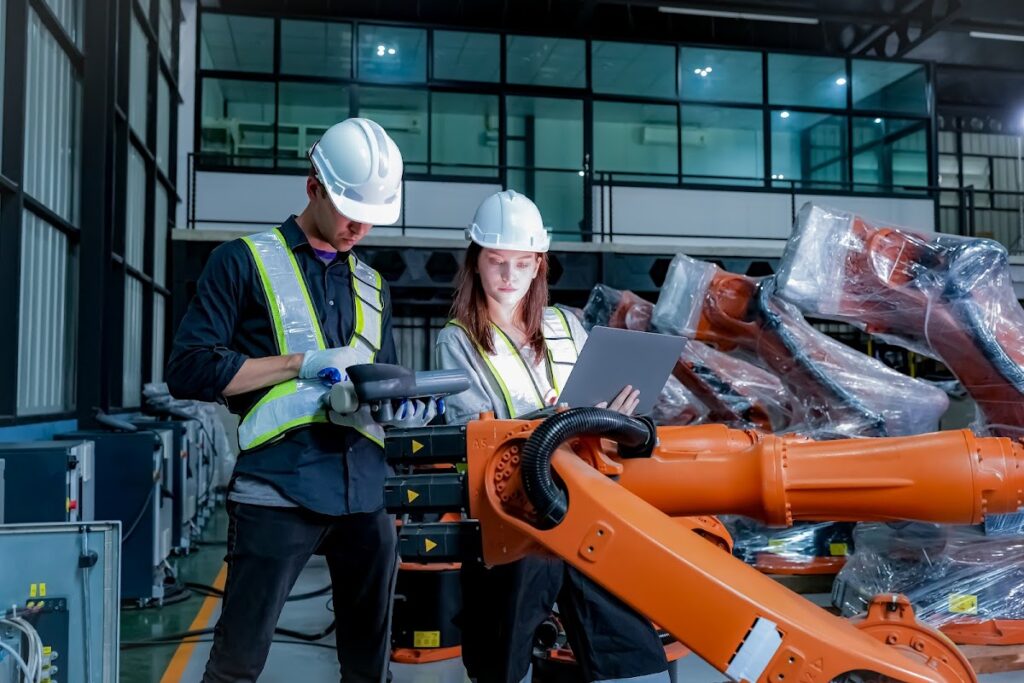
Steps to Equip Your Business with Industrial Automation
Begin with a comprehensive needs assessment. Understand your current operations to find shortcomings. Assess control systems, machinery, and process control for inefficiencies. This step will give you an idea of which industrial automation equipment will be helpful to your operations.
Define specific, clear goals for your automation project. Whether you want to improve productivity, enhance the quality of your product, or reduce costs, objectives that align with the overall business strategy are critical. Clear goals will guide your choice of automation products and guarantee that all investments yield a concrete payoff.
Stay current with innovations in industrial automation; appraise various industrial automation systems having a performance view, scalability, flexibility, and integration. Review some vendors and their solutions that best fit your needs. Look at hardware, software, and network interfaces perfect for monitoring and controlling your operations.
Develop a complete integration strategy to allow for a seamless transition and check for compatibility with the systems you already have in place, such as programmable logic controllers (PLCs) and motion control devices. Schedule around production cycles to avoid hours of general production time that may be lost during the implementation and be prepared for any problems.
Also, ensure that your new automation equipment yields maximum return on investment by providing employee training. Hold training programs and provide relevant resources so that employees develop adequate skills for operating and maintaining the new systems. Encourage continuous learning and the development of skills to update practices in the face of advancing technologies while ensuring efficiency remains high.
Run data analytics regularly on your automation systems to identify further areas of optimization and ensure the efficiency of your operations. Keep up with the changes and improve processes to stay competitive in the dynamic market. By following these steps, you can effectively equip your business with the latest industrial automation solutions and drive significant improvements in productivity, efficiency, and cost savings.
Industrial automation is critical to improving productivity, efficiency, and product quality in today’s demanding manufacturing environment. Keeping ahead with the latest automation technologies will help keep your business competitive and cost-effective. Equipping your operations with modern industrial automation equipment can streamline processes, reduce human intervention, and achieve higher throughput.
Begin by assessing your automation needs and exploring the solutions AP4 offers. Our high-performance automation systems cover the breadth of industrial applications, from motion control and robotics to process control and monitoring. AP4 is committed to delivering quality products and innovative solutions tailored to your unique requirements.
For more information or to discuss your specific needs, contact us today. Our sales and support teams are ready to assist you in integrating the latest automation technologies into your business, ensuring optimal performance and customer satisfaction.
